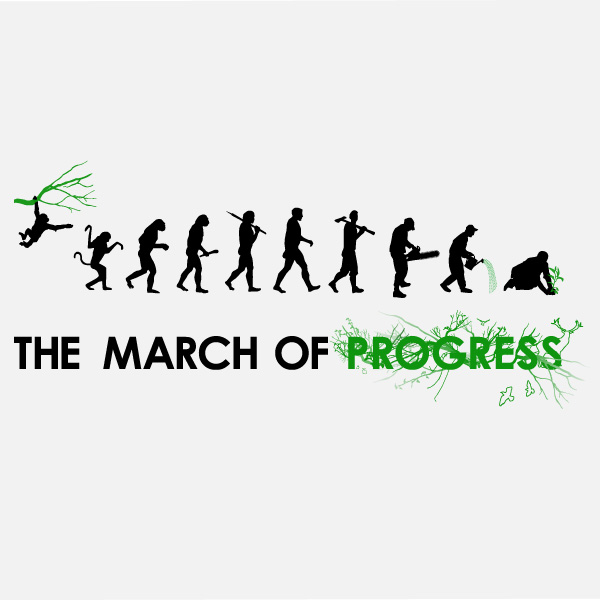Just clear your desk of all papers except those relating to the immediate problem at hand.
Roland L. Williams, President of Chicago and Northwestern Railway, once said, “A person with his desk piled high with papers on various matters will find his work much easier and more accurate if he clears that desk of all but the immediate problem on hand. I call this good housekeeping, and it is the number-one step toward efficiency.”
If you visit the library of Congress in Washington D.C., you will find five words painted on the ceiling- five words written by the poet pope:
“Order is Heaven’s first law.”
Order ought to be the first law of business, too. But is it? no, the average desk is cluttered up with papers that have not been looked at for weeks. In fact, the publisher of a New Orleans newspaper once told me that this secretary cleared up one of his desks and found a typewriter that had been missing for two years.
The mere sight of a desk littered with unanswered mail and reports and memos is enough to breed confusions, tensions and worries. It is much worse than that. The constant reminder of “A million things to do and no time to do them” can worry you not into tension and fatigue, but it can also worry you into high blood pressure, heart trouble, and stomach ulcers.
But how can such an elementary procedure as clearing your desk and making decisions help you avoid this high pressure, this sense of must, this sense of an “unending stretch of things ahead that simply have to be done? Charles Evans Hughes, former Chief Justice of the United States Supreme Court, said: “Men don’t die from overwork. They die from dissipation and worry.” Yes, from dissipation of their energies-and worry because they never seem to get their work done.
Another good working habit- Henry L. Doherty, founder of the nation-wide Cities Service Company, said that regardless of how much salary he paid, there were two abilities he found it almost impossible to find. Those two priceless abilities: first, the ability to think, second the ability to do things in the order of their importance.
Charles Luckman, the lad who started from scratch and climbed to twelve years to president of the Pepsodent Company, got a salary of a hundred thousand dollars a year, and made a million dollars besides-that lad declared that the owed much of his success to development the two abilities that Henry L. Doherty said he found almost impossible to find.
Charles Luckman said: “As far back as I can remember, I have gotten up at five 0’ clock in the morning because I can think better then than any other time- I can think better then and plan my day, plan to do things in the order of their importance.”
Frank Bettger, one of America’s most successful insurance salesmen, didn’t wait until five 0’clock in the morning to plan his day. He planned it the night before-set goal for himself-a goal to sell a certain amount of insurance that day. If he failed, that amount was added to the next day- and so on.
A person who has long experience in this field can tell that one is not always able to do things in the order of their importance, but I also know that some kind of plan to do first things first is infinitely better than extemporizing as you go along.
If George Bernard Shaw had not made it a rigid rule to do first things first, he would probably have failed as a writer and might have remained a bank cashier all his life. His plan called for writing five pages each day. That plan inspired him to go right on writing five pages a day for nice heartbreaking years, even though he made a total of only thirty dollars in those nine years-about a penny a day. Even Robinson Crusoe wrote out a schedule of what he would do each hour of the day.
just remember one thing when you face a problem, solve it then and there if you have the facts necessary to make a decision. Don’t keep putting off decisions. Just learn to organize, deputize and supervise. Many business person are driving themselves to premature graves because they have never learned to delegate responsibilities to others, insisting on doing everything themselves. Result: Details and confusion overwhelm them. They are driven by a sense of hurry, worry, anxiety, and tension. It is hard to learn to delegate responsibilities. I know it was hard for me, awfully hard, I also know from experience the disasters that can be caused by delegating authority to the wrong people. But difficult as it is to delegate authority, executives must do it if they are to avoid worry, tension and fatigue.
Executives who build up big businesses and don’t learn to organize deputize, and supervise, usually pop off with heart trouble in their fifties or early sixties- heart trouble caused by tension and worries. Want a specific instance? Look at the death notice in your local paper. Many people commit suicides just because of tensions. I think it was the event of 3 years ago, when there was a drastic fall down in the share market of India. Two of my neighbors suffered from fatal heart attack and passed away. On the same day, three people ate poison. So what was the reason, they just could not bear the pressure of tension. If they wanted they could face the problems and survive, but they chose to death. So we should think about the solutions not about the causes. One of my friend shared a story with me about the same issue. Once there was a big Shiva temple somewhere in South India. Holy Priests were busy in worshipping Lord Shiva. It was Mughal time in India. So a small troop of Mughal invaders attacked on the temple. The ratio of people was like: 500 Priests and 50 Mughal invaders. Mughal invaders started ruining the temple, after seeing this situation, all the holy priests started chanting the name of Lord Shiva: “Hey Lord Shiva, Please save us, please save us,” instead of fighting back with those invaders. Unfortunately, Lord Shiva did not come to save them, and those bloody invaders ruined the temple and looted all the gold and exotic stuff from the temple. If priests wanted they could have saved the temple. How ironic it was! So the moral of story is simple, we just don’t find solutions, we usually get obsessed and rely on irrelevant things. Yes, that’s true, you can practice the art of coping but it’s not the solution. If you are in a tension and want to get relaxed for sometime, just distract yourself. But it is not the final solution. So be practical and optimistic, fly like a bird and live like a lion. No one can hurt you if you don’t allow them, it is always a person who hurts himself not others.









 I’m pretty sure we all want to face this world with confidence and show ourselves as a confident, smart, intelligent and a determinate person. We all have the power of changing people and show yourself as a leader among people. Who does not want to be famous? Who does want fame and money? I am sure you also want to be a successful in your life. To be successful in your life, you are required to work hard and possess enough confidence to face people and deal with them.
I’m pretty sure we all want to face this world with confidence and show ourselves as a confident, smart, intelligent and a determinate person. We all have the power of changing people and show yourself as a leader among people. Who does not want to be famous? Who does want fame and money? I am sure you also want to be a successful in your life. To be successful in your life, you are required to work hard and possess enough confidence to face people and deal with them.